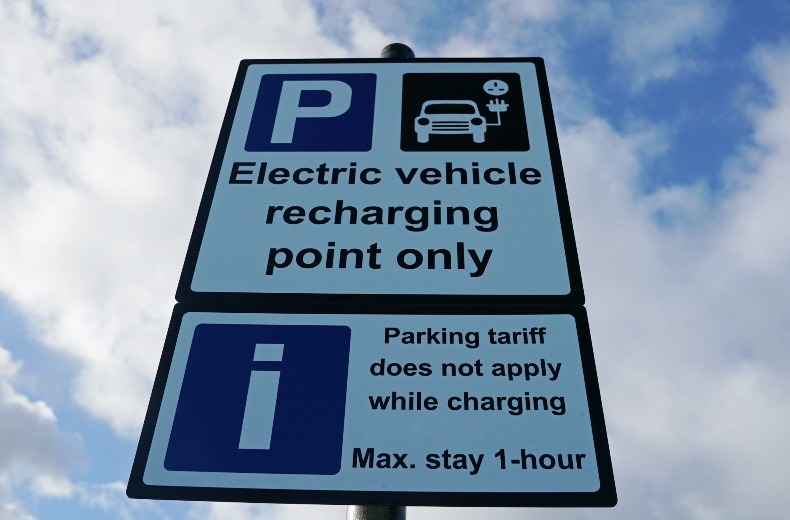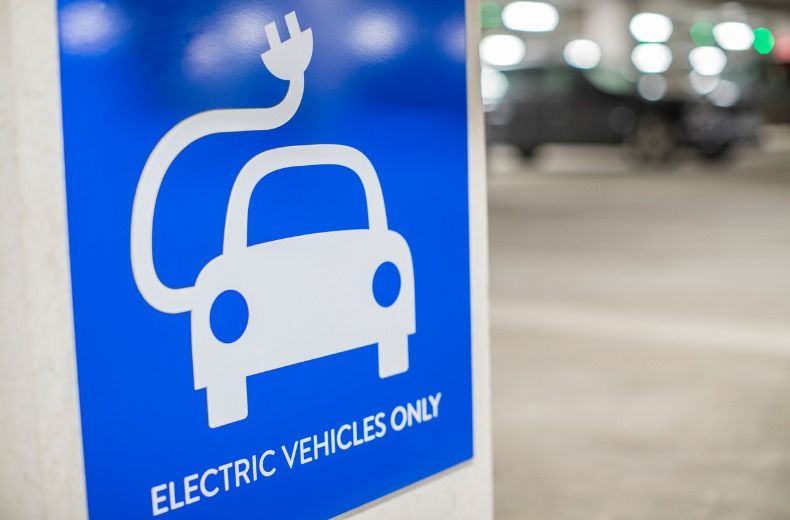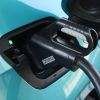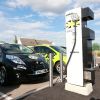Although hybrid cars are being allowed until 2035 under the new system, the decision has made questions about buying an electric car more topical than ever.
While the plans don’t mean the end for the sale of used petrol and diesel cars, there’s never been a better time to weigh up whether to make the switch to electric sooner rather than later.
Here, we look at whether there’ll be enough chargers to meet demand, the costs of running an electric vehicle (EV) and much more to help you weigh up your options.
Are there enough public charging points?

It’s difficult to know how many charging points are needed to deal with extra demand by 2030.
According to the DVLA, as of October 1st 2023, there are 49,220 public electric vehicle charging devices available across the UK - in over 30,000 locations. Of these, 8,908 had 50kW and above charging ability.
With so much cash assigned to boosting infrastructure, we’ll be seeing considerably more public charging devices long before the new 2035 ban is enforced.
- Electric cars – a definitive guide and tips for buyers
- Electric car charging – how it works and how much it costs
- Electric car leasing explained – EV financing vs buying
What needs to be done to improve charging infrastructure?
To ensure there are enough chargepoints available for all EV owners, efforts to install devices will need to be made by motorists and private companies too.
Plans to get the UK EV-ready are thankfully already well underway.
The Government has announced billions of pounds in funding - and this is aimed at improving infrsatructure, making charging cheaper, and accelerating the adoption of EVs from the public.
In September 2023, EV and renewable energy campaign group FairCharge, in partnership with the RAC, created the UK’s first charter for electric vehicle (EV) public charging with the aim of improving the reliability, transparency, accessibility, and usability of the UK’s rapidly growing charging network.
Also, in the latest Report on Motoring, it highlighted that after several years of increases, the number of drivers who plan to buy a battery-electric car next has plateaued in 2023: having risen from 2% in 2017 to 14% in 2022, the figure has slipped to 13% in 2023.
Efforts will be needed from both government and industry leaders to reverse this.
Find out how the UK is getting ready for electric vehicles.


What’s happening at forecourts?
.jpg)
Although the majority of existing EV drivers are currently charging at home and the workplace, we know that conversion of traditional forecourts is a key part of supporting a shift from conventional fuel to electric.
Some of the big names in fuel have already started adding electric car chargers alongside their petrol and diesel pumps.
All major supermarkets are currently rolling out mass EV charging stations across the UK.
Are there any other kinds of chargers available?
In order to create more public chargepoints, councils across the UK have started to install more unconventional devices:
- Lampost chargers – convert streetlights so they double up as chargers for EVs. The idea is particularly useful as local authorities try to avoid cluttering pavements. German company Ubitricity has already started converting lampposts in London boroughs.
- Induction pads – use wireless technology to charge EVs from under the vehicle. The city of Nottingham has won a £3.4 million government grant to trial wireless charging for its taxis.
Can I run cables across the pavement to charge an electric car?
According to the National Grid, 40% of people in England and Wales don’t have off-street parking. That could mean that large numbers of EV owners attempt to charge their cars with cables left lying across public footpaths.
If this is the case, drivers should use a raised plastic cable protector to minimise the risk of tripping pedestrians.
Although the Local Government Authority says there is no legislation that would make placing a cable on the pavement illegal, it’s best to do what you can to avoid injuring others.
How can I afford a new electric car?
Although the running costs of owning an EV are much cheaper than those for a car with a conventional internal combustion engine, many would-be buyers are deterred from switching to electric because of the initial pay out.
The upfront cost of an electric car is typically more expensive than a petrol or diesel equivalent. Here we take a look at some of the incentives available to help make an EV purchase cheaper.
Workplace charger grant
The Workplace Charging Scheme is a voucher-based initiative designed to help businesses, charities and public sector organisations with the cost of buying and installing a chargepoint.
Applicants can receive up to £350 of support without owning an electric vehicle.
Scrappage schemes
Currently, there is no government-backed scrappage scheme to help with the costs of buying an electric car.
Ministers rejected calls for a new scheme to help with costs back in July this year, after manufacturers felt drastic action was needed to address record-low sales affected by the coronavirus crisis.
However, London residents who receive certain benefits can apply for a grant of up to £2,000 to scrap cars and motorcycles that don't meet the Ultra-Low Emissions Zone (ULEZ) standards.
Some vehicle manufacturers also offer scrappage schemes to encourage motorists to pick up a cleaner new car. You should check current manufacturer schemes thoroughly to check if your car can be traded in to give you a discount on one of their electric models.

RAC sale – up to 33% off*
• Roadside cover from £5.29 a month†
• We get to most breakdowns in 60 mins or less
• Our patrols fix 4/5 breakdowns on the spot

How much tax will I pay on an electric car?
Electric car owners do not pay 'car tax' (Vehicle Excise Duty). While they’re exempt from any fees, they must still process their vehicle with the DVLA's tax portal.
Should I switch to a hybrid instead?
New hybrid cars can be sold up until 2035.
Before you decide between a hybrid or pure-electric vehicle you should weigh up the pros and cons across key areas:
- Upfront cost – EVs are typically more expensive than their hybrid equivalents. Hybrid cars have also been more widely available than electric cars for some time now – which means you’re more likely to pick up an affordable second-hand deal on the dual-powered vehicles.
- Running costs – If this is a priority you should choose an electric vehicle. With a cheap energy provider and free charging opportunities, EVs are more affordable than hybrids to run. Throw in the tax exemption on pure EVs and the savings become even more apparent.
- Range – Hybrid cars are a natural choice if you typically travel longer distances. However, with improvements to both charging infrastructure and the range on EVs, ‘range anxiety’ is becoming less of a concern.
- Environmental impact – Unlike hybrids, pure EVs produce no tailpipe emissions. According to the latest research from Transport & Environment, hybrid cars are more polluting than manufacturers claim. The campaigners point out that drivers rely on their combustion engine more than a rechargeable battery in real world use. EVs are the clear winner if you’re looking for a more environmentally friendly car.
- Maintenance – With fewer moving parts, electric vehicles are generally much easier to maintain. However, if a serious problem arises it might be more difficult to find a garage to fix it, so expect to pay a premium if you’re unlucky.
Are you ready to take the plunge? Let us know what you think about EVs in the comments below.
FAQs
- Is it worth buying an electric car now?
That depends on your circumstances. Early adopters will benefit from tax exemption, purchase grants and home charging grants that could become less readily available as more motorists switch to EVs.
- Will it be cheaper to fuel an electric car than a traditional car?
According to charging experts Pod Point a typical electric car with a 60kWh battery and 200-mile range costs about £8.40 for a full charge at home. That’s not to forget the free charging opportunities at workplaces, and public locations.
In early 2020 some EV owners were actually paid to recharge their battery as they used excess electricity.
- Is it free to charge my electric car?
Currently, free chargepoints are available publicly and at some forward-thinking workplaces. As more motorists switch to EVs, the toll-free charging options might become harder to find.
- How much will it cost to install a home charger?
A home charger will typically cost between £450 to £1,500 (for faster charging units) with the Electric Vehicle Homecharge Scheme.
- Can I charge an electric car on a public road?
There are an increasing number of charging points that can be used on public roads.
If you’re looking for one near you, Zap-Map provide an up-to-date map of public charging points across the UK.
- How long does it take to charge an electric car?
That depends on the type of charger you’re using and the size of your car’s battery.
Slow charging from empty to 100%, typically takes around 5-8 hours for most EVs, rising to around 12 hours for longer range cars with larger batteries.
Using a rapid charger typically takes around 45mins–1 hour for an 80% charge, rising to around 1.5 hours for the longer range EVs with larger batteries.
Rapid charge times are generally quoted to 80% charge because beyond this, the charging speed automatically tapers off to prevent battery damage.
- What’s the lifespan of an electric car battery?
Electric car batteries can last anywhere between 10 to 20 years.
Most manufacturers will sell a new EV with a five to eight-year warranty on their battery.
- How much ‘life’ do conventional cars have left in them?
Despite the ban on the sale of new petrol and diesel cars, second-hand models can be still be sold from 2030.
It’s possible that fewer manufacturers will make petrol and diesel cars as the deadline looms, but we should use the end of the decade as the basis to answering this question.
According to the SMMT, the average vehicle age at scrappage is just under 14 years. That could mean petrol and diesel cars become a rarity on the roads around 2043.
- How long will it take for the next alternative fuel to replace electric?
Hydrogen fuel cells are tipped to be the next big change in powering vehicles.
Currently, infrastructure is poor and fewer than 20 refuelling stations can be found in the UK.
Although an extremely limited number of hydrogen-powered cars are available to buy, it will take a considerable amount of time before they’re viewed as a mainstream transport option.
- Are there enough charging points to plan a long drive?
A driver is never more than 25 miles away from a rapid chargepoint anywhere along England’s motorways and major A roads.
If you’re planning a road trip and you’re concerned there won’t be enough chargers along the way, Zap-Map’s EV route planner
is designed to plan stops so you’ll never be caught short on battery life. - Does my local area have enough charging points?
You can check Zap-Map’s interactive map to see how many charging points are in your immediate area.
- Will there be more affordable electric cars in the near future?
You might be surprised to learn about the range of affordable electric cars that are currently available. Manufacturers are keen to tap into a growing market and plans for more cheaper models have already been made for 2021.
If you’re likely to buy second-hand, the market for used EVs is also set to grow as growing number of motorists switch to electric cars. This in-turn will drive down prices across similar and older models.
Still not sure? Check out these EV myths getting busted:
The RAC is leading the way when it comes to supporting drivers in the switch to electric vehicles.
An ever-increasing number of our patrol vans have built-in emergency mobile charging systems capable of giving an out-of-charge electric car enough power to be driven a short distance home or to a working chargepoint, while our All-Wheels-Up recovery system allows our patrols to safely rescue electric cars with no need for a flatbed.
Find out more about the RAC’s electric car breakdown cover.
Read next in Running an electric car
Find out how electric cars will change our roads and impact the environment next.
Return to the RAC Drive Electric cars hub
Read our guides on choosing, charging and running an electric car.

RAC sale – up to 33% off*
• Roadside cover from £5.29 a month†
• We get to most breakdowns in 60 mins or less
• Our patrols fix 4/5 breakdowns on the spot














